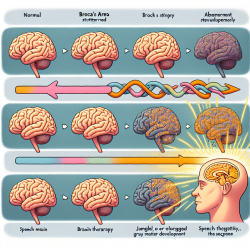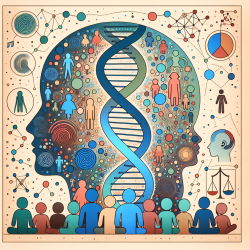Introduction
The COVID-19 pandemic has reshaped our lives in unprecedented ways, affecting not only our physical health but also our mental well-being. As practitioners, understanding the intricate relationship between lifestyle choices and psychological health is crucial, especially in times of global crises. A recent study, "Association of the Practice of Physical Activity and Dietary Pattern with Psychological Distress before and during COVID-19 in Brazilian Adults," provides valuable insights into how physical activity and nutrition can influence mental health.
The Power of Physical Activity
Physical activity is more than just a means to maintain physical fitness; it is a powerful tool for enhancing mental health. The study highlights that individuals who maintained regular physical activity before and during the lockdown experienced lower levels of psychological distress. This is particularly significant for women, who were found to be six times more likely to experience very high stress compared to men.
Practitioners can encourage their clients to incorporate physical activity into their daily routines, even if it means starting with short, manageable sessions. The key is consistency. Regular exercise, whether it's a brisk walk, a home workout, or yoga, can significantly reduce symptoms of anxiety and depression.
Nutritional Balance and Mental Health
Nutrition plays a critical role in mental health. The study found that not consuming larger amounts of food during lockdown was associated with lower stress levels. This suggests that a balanced diet, rather than excessive eating, can help maintain mental well-being.
As practitioners, guiding clients towards healthier eating habits can be transformative. Encourage them to focus on a diet rich in fruits, vegetables, lean proteins, and whole grains. These foods not only support physical health but also contribute to a stable mood and reduced anxiety.
Implementing Research Findings in Practice
Practitioners can leverage the findings of this study to enhance their therapeutic approaches. Here are some actionable steps:
- Promote Regular Physical Activity: Develop personalized exercise plans that clients can follow at home. Use online resources and apps to make exercise accessible and engaging.
- Encourage Balanced Nutrition: Educate clients on the importance of a balanced diet and provide them with simple, healthy recipes to try at home.
- Monitor Mental Health: Use tools like the K10 instrument to assess anxiety and depression levels regularly, adjusting interventions as needed.
Encouraging Further Research
While this study provides valuable insights, it also opens the door for further research. Practitioners are encouraged to explore additional studies that examine the long-term effects of physical activity and nutrition on mental health. Understanding these relationships can lead to more effective interventions and improved client outcomes.
To read the original research paper, please follow this link: Association of the Practice of Physical Activity and Dietary Pattern with Psychological Distress before and during COVID-19 in Brazilian Adults.










